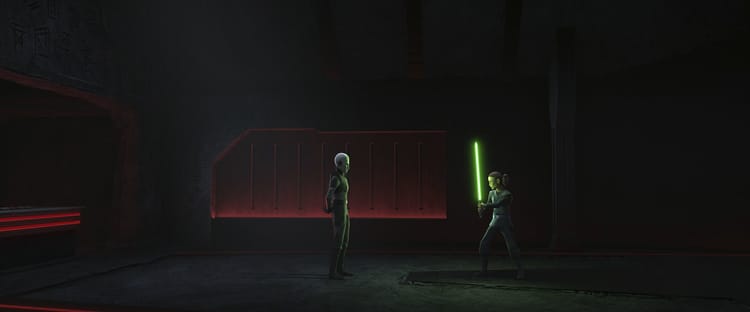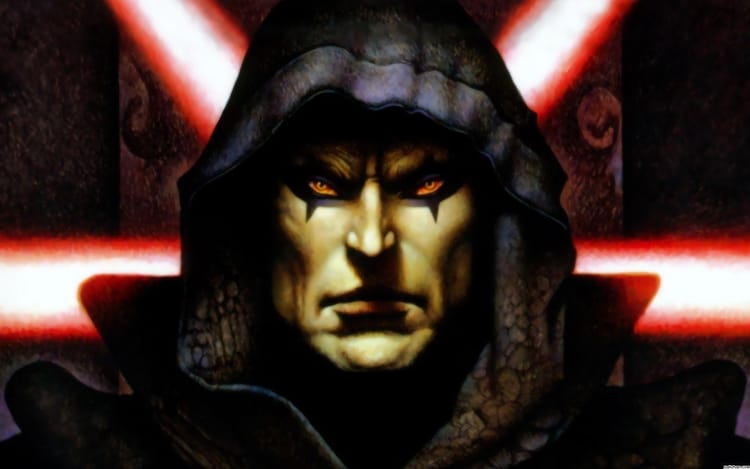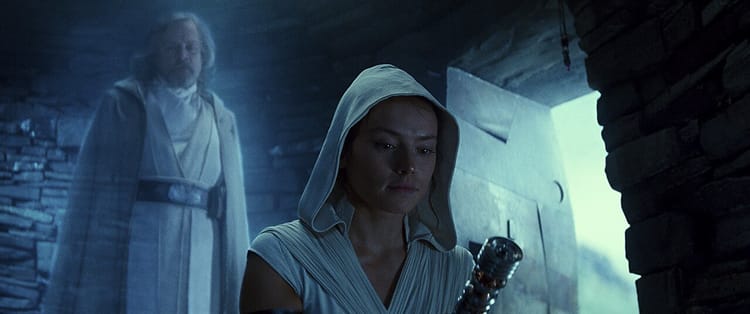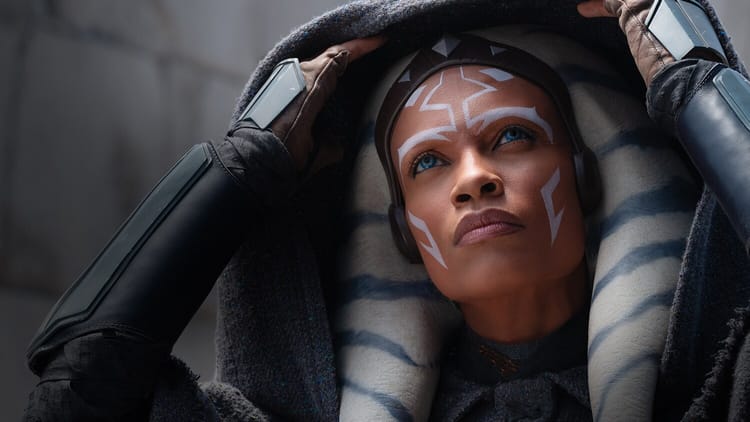
Film Review | Shang-Chi and the Legend of the Ten Rings

Producers: Marvel Studios
Runtime: 132 minutes
MPAA Rating: PG-13
EE Critic Score: 7/10
Shang-Chi and the Legend of the Ten Rings is the 25th film in the Marvel Cinematic Universe. It tells the story of the son of a powerful and secretive Chinese warlord, who must return home from America to face his father and prevent the release of a terrible power onto the world. The film draws on Chinese mythology and features Chinese-American culture to flesh out a unique setting amongst MCU films.

Synopsis
The film starts by telling the legend of the Ten Rings, bracelet-like artifacts which, one way or another, come into the possession of a medieval Chinese man (Tony Leung), who used their power to live for centuries, first as a mighty warlord, then later as the shadowy leader of an army of assassins, which he also called the Ten Rings. By the 1990s, he determines that the only part of the world beyond his reach is the fabled village of Ta Lo, which he seeks out in the heart of a forest of constantly-shifting bamboo. He reaches the entrance, and he tries to fight his way in past a woman guarding it (Fala Chen). The woman is able to match him in hand-to-hand combat, despite the power of his rings. Eventually, the man and the woman fall in love and start a happy, quiet life together, he setting aside the rings and she leaving her mystic home. They have two children, Shang-Chi and Xialing.
We then flash forward to the present day to see that Shang-Chi (Simu Liu) has moved to San Francisco and is working as a parking valet under the name Shaun. He and fellow valet Katy (Awkwafina) are ambushed on a bus by a group of assassins, led by Razor Fist (Florian Muntanu) who has a machete in place of his right hand. Katy is shocked by Shaun's fighting skill as he fends the attackers off. She takes control of the bus after the driver becomes incapacitated. After the bus comes to a controlled crash, the assassins steal Shang-Chi's necklace, which was given to him by his mother. He tells Katy that the assassins worked for his father.
He had received a letter recently from his sister, and now he needs to go find her, because their mother had given her a matching necklace. Katy insists on coming with him. On a flight, Shang-Chi explains who his father is, and tells Katy that after his mother was killed by a gang, his father returned to his old ways. He trained Shang-Chi as an assassin, but Shang-Chi deserted on his first mission. The two travel to Macau (actual Macau, this time, not Marvel's Own-Brand Macau from Falcon & the Winter Soldier) There they find Xialing (Meng'er Zhang) running a fighting club in the top of a half-built skyscraper. She arranges for Shang-Chi to be sent into the arena, where she fights him personally. She resents Shang-Chi both for being picked as their father's sole heir, and for leaving her. In the club, she says she has built her own empire, without the aid of her father.
That empire soon falls as more Ten Rings assassins burst into the club, searching for Xialing's necklace. Xialing and Shang-Chi fight to escape down the scaffolding on the outside of the building, all the while protecting Katy from the assailants. At the bottom, however, are many more assassins, and the father, who has come personally to take his children home.
They are taken to the Ten Rings fortress, hidden somewhere in the mountains of China. The father (who says he has been known by many names, but who was born Xu Wenwu) Tells them that his dead wife still lives, shut behind an enchanted door in Ta Lo. He intends to find a way back through the shifting forest with his army and free her. Wenwu's children tell him he's deluded, but they are amazed when their two necklaces prove to be the key to revealing a map through the shifting forest. It appears that their mother did indeed intend for them to go there someday.
Within the fortress, Shang-Chi, Xialing, and Katy discover Trevor Slattery (Ben Kingsley), the actor who had portrayed the Mandarin, whom Xu Wenwu had sprung from prison and is keeping as a sort of court jester, as well as a dijiang (a furry, winged, faceless creature from Chinese myth) whom Slattery has named Morris. Slattery claims that Morris can guide them through the shifting forest before the appointed date given on their mother's map. They all break out of the fortress in Razor Fist's car, escaping pursuers into the shifting forest and eventually finding the entrance to Ta Lo. After an initially hostile reception, they are welcomed to the village by Shang-Chi and Xialing's aunt.
She tells them that Ta Lo is not simply a mystical paradise. Ages ago, an evil dragon sought to devour humanity's souls. A good dragon aided the people of Ta Lo in driving the evil dragon into a cave on the far side of a lake, where it was sealed behind an enchanted door. Since then, Ta Lo have served as a line of defense between the normal world and the cave. Every so often, someone powerful enough to free the evil dragon emerges, and is lured to the door with promises of their greatest desire waiting beyond it. It appears that Xu Wnwu, with his mighty rings, is the latest such person.
Shang-Chi, Xialing, and Katy are recruited to help defend Ta Lo against Wenwu's army, which will arrive soon. Katy protests that she is not a fighter and has never been really good at anything, but she is trained as an archer. Shang-Chi and Xialing are each provided with a set of armor made from dragon scales.
Wenwu arrives with his army. When the people of Ta Lo order him back, his army attacks, while he himself heads straight for the door and begins beating against it with the power of his rings. Cracks in the door allow the evil dragon's minions to escape. They descend on the two armies and begin seizing souls to feed the evil dragon. Ta Lo and the Ten Rings join forces to fight the minions off. Shang-Chi goes to the door to stop his father, using his mother's mystical fighting techniques. Shang-Chi is eventually also able to take control of the rings, but not before the evil dragon breaks through the door. It consumes Wenwu's soul, then moves against Ta Lo.
The good dragon returns from the depths of the lake to battle its old enemy. The evil dragon gains the upper hand. As it begins to consume the good dragon's soul, Katy shoots it in the neck with an arrow. Shang-Chi then uses the power of the rings to slay the evil dragon.
After the battle, Shang-Chi and Katy return to San Francisco. There, they are found by Wong (Benedict Wong), who desires to know more about the rings. In a post-credit scene, we see that Xialing has inherited the other Ten Rings; she now rules over her father's armies from his hidden fortress.

Analysis
This film really excelled in its technicals. The MCU has its strengths and weaknesses, and one of its more noteworthy weaknesses has been how it presents hand-to-hand combat scenes. These scenes aren't always terrible (though they are sometimes; the final fight between T'Challa and Killmonger at the climax of Black Panther, for instance, really undercut and otherwise good film) but it's rare tat a Marvel film has a melee scene worth recommending. Shang-Chi and the Legend of the Ten Rings has two, maybe three. Neither of these are the climactic action scene, sadly, but they did exist, and the people involved in making them deserve commendation. Bothe the fight between Shang-Chi and Razor Fist aboard the bus and the rush of assassins on the side of the tower set a new standard for such scenes in MCU features.
Besides these two scenes, however, the film doesn't make a terribly lasting impression. A lot of that comes down to the characters. The acting is overall good, especially from sitcom star Simu Liu and first-time performer Meng'er Zhang, neither of whom have starred in a project like this before. But good acting does not make for good characters all on its own. The heroes of Shang-Chi are an interest-killing blend of static and reactive. Shang-Chi is a capable fighter and seems to be a good egg, but he doesn't really come off as a superhero. His journey, what there is, is that he comes to accept his own heritage. But he's still the same person at the end of the film as he is at the beginning. Like The Lord of the Rings, it ends with Shang-Chi and Katy returning home after going off on an adventure to save the world (involving rings, even). But where the hobbits can never quite fit back into the quiet community of the Shire, Shaun and Katy don't seem shaken by their experiences at all. And Shang-Chi goes through the whole film without any clear motivation. Superhero motivations are generally pretty easy: the hero takes on responsibility for the safety of his community (maybe just their family, maybe the entire world, usually something in-between) and defends them against attackers. Shang-Chi doesn't proactively do that. He just rides the waves of the plot until he gets dumped off in front of a dragon to fight. He and Katy both are established as sort of floating through life, ambitionless and directionless. Katy gets a little bit of an arc when she finds the self-discipline to master archery. Shang-Chi doesn't have that.

Xialing is an even more weirdly handled character. By rights, this should have been as much her movie as her brother's, considering that the driving force of the plot is their father. And, while she's there throughout the last half of the film, she isn't given much to do, serving as just another warrior in the Big Battle at the End. This is really too bad, because Xialing actually has goals in life, namely to prove herself a worthy heir to her father's empire. She achieves this in the end, where we see her sitting on her father's throne after filling his thousand-year-old mountain fortress with grafitti. (The trouble with secret lairs is that, what with all the secrecy, the path to UNESCO protection is kind of closed, I guess.) I suppose that they're establishing her as a character here, rather than having a sequel wherein Shang-Chi suddenly has a sister who's running their father's old army who we've never heard about, but I still think she deserved co-billing.
Xu Wenwu will hopefully salve Marvel fans' ire over Iron Man III's portrayal of the Mandarin. I've seen a few other sites refer to Xu as the Mandarin, though that's not a name he uses. Indeed, he finds tit rather ridiculous to operate under the name of a fruit. (Actually, "mandarin" originally was the term for an Imperial official, who generally spoke a northern dialect of Chinese now also called Mandarin. Xu should know this, considering his age.) Xu is a combination of both the Mandarin and Marvel's version of Fu Manchu, a sinister (and similarly stereotypical) character who is Shang-Chi's father in the comics. He serves as the protagonist of the film, not in the sense that he is the hero but in the sense that he is the character whose goals and actions move the plot forward. It isn't uncommon in superhero films to have a villainous protagonist for the main plot (wherein the hero usually has to stop some evil plan or attack) but there's usually also a B-Plot, where the hero has their own goals, large or small. Shang-Chi, though, doesn't have much else going on in his life besides keeping his father from destroying his mother's village, so Xu gets the only complete, feature-length plot in the film. Even though his actions are because he's being deceived, and even though he dies in the end, Xu is treated with weight and respect by both the other characters and the script. So, there you go: the Mandarin done better.
Like the action, the score of this film exceeds MCU standards. Not only did it sound nice, but it was also constructed well. The melding of the motifs used for Shang-Chi's father and mother when he uses his father's rings and his mother's techniques to slay the evil dragon tells the conclusion to Shang-Chi's personal journey wordlessly and elegantly.

Recommendation & Rating
This film works, generally, though long-time MCU fans will recognize similar plot elements from earlier works (Black Widow, Thor: The Dark World, and Thor: Ragnarok especially). If you missed it in theaters, it’s worth a watch. The best part is the fight choreography, which sets a new bar for MCU films. The rest is good, if not especially memorable.
7/10 — With some measurable negative worth, but overall a positive experience. Above average and able to be sincerely recommended.






Member Commentary